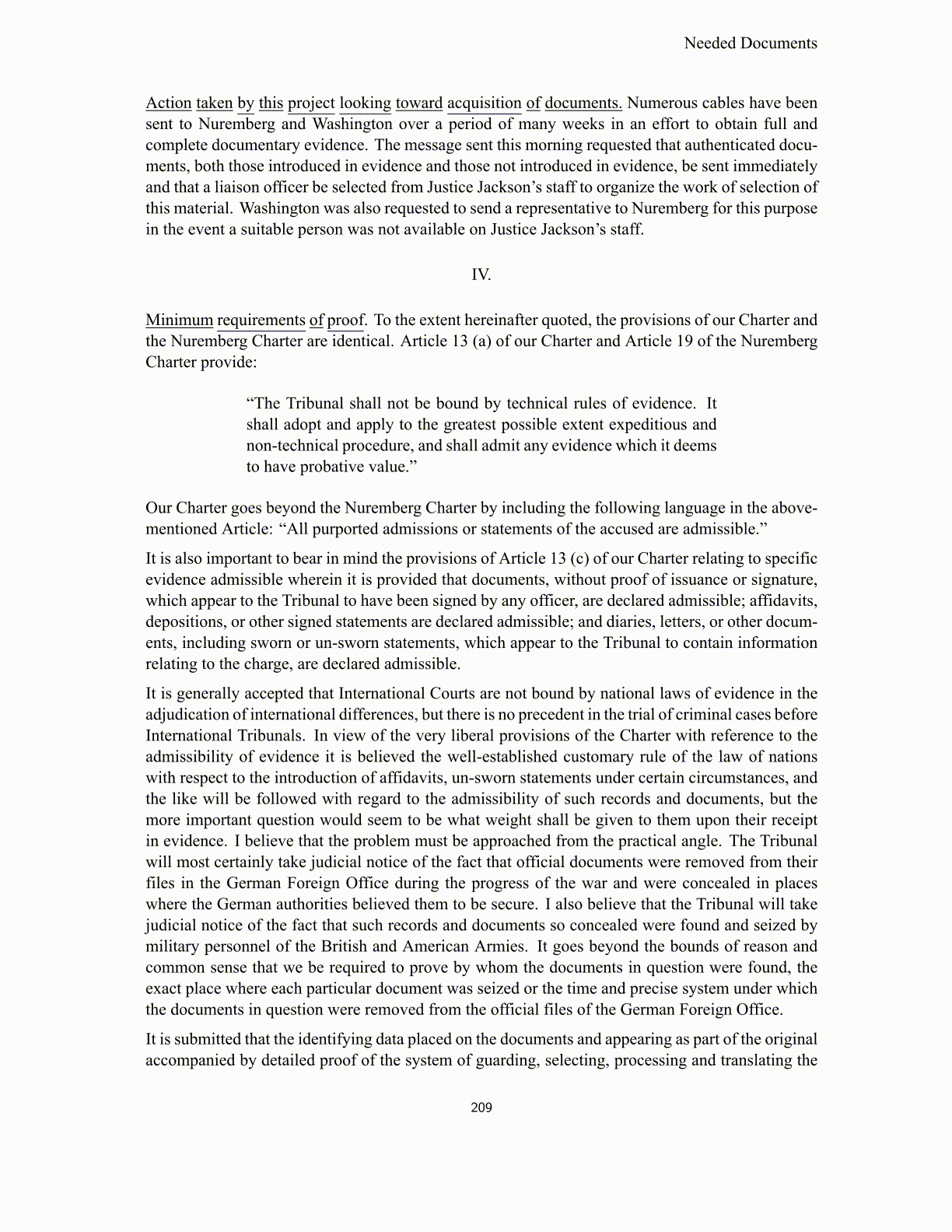
Needed Documents Action taken by this project looking toward acquisition of documents. Numerous cables have been sent to Nuremberg and Washington over a period of many weeks in an effort to obtain full and complete documentary evidence. The message sent this morning requested that authenticated docu- ments, both those introduced in evidence and those not introduced in evidence, be sent immediately and that a liaison officer be selected from Justice Jackson’s staff to organize the work of selection of this material. Washington was also requested to send a representative to Nuremberg for this purpose in the event a suitable person was not available on Justice Jackson’s staff. IV. Minimum requirements of proof . To the extent hereinafter quoted, the provisions of our Charter and the Nuremberg Charter are identical. Article 13 (a) of our Charter and Article 19 of the Nuremberg Charter provide: “The Tribunal shall not be bound by technical rules of evidence. It shall adopt and apply to the greatest possible extent expeditious and non-technical procedure, and shall admit any evidence which it deems to have probative value.” Our Charter goes beyond the Nuremberg Charter by including the following language in the above- mentioned Article: “All purported admissions or statements of the accused are admissible.” It is also important to bear in mind the provisions of Article 13 (c) of our Charter relating to specific evidence admissible wherein it is provided that documents, without proof of issuance or signature, which appear to the Tribunal to have been signed by any officer, are declared admissible; affidavits, depositions, or other signed statements are declared admissible; and diaries, letters, or other docum- ents, including sworn or un-sworn statements, which appear to the Tribunal to contain information relating to the charge, are declared admissible. It is generally accepted that International Courts are not bound by national laws of evidence in the adjudication of international differences, but there is no precedent in the trial of criminal cases before International Tribunals. In view of the very liberal provisions of the Charter with reference to the admissibility of evidence it is believed the well-established customary rule of the law of nations with respect to the introduction of affidavits, un-sworn statements under certain circumstances, and the like will be followed with regard to the admissibility of such records and documents, but the more important question would seem to be what weight shall be given to them upon their receipt in evidence. I believe that the problem must be approached from the practical angle. The Tribunal will most certainly take judicial notice of the fact that official documents were removed from their files in the German Foreign Office during the progress of the war and were concealed in places where the German authorities believed them to be secure. I also believe that the Tribunal will take judicial notice of the fact that such records and documents so concealed were found and seized by military personnel of the British and American Armies. It goes beyond the bounds of reason and common sense that we be required to prove by whom the documents in question were found, the exact place where each particular document was seized or the time and precise system under which the documents in question were removed from the official files of the German Foreign Office. It is submitted that the identifying data placed on the documents and appearing as part of the original accompanied by detailed proof of the system of guarding, selecting, processing and translating the 209